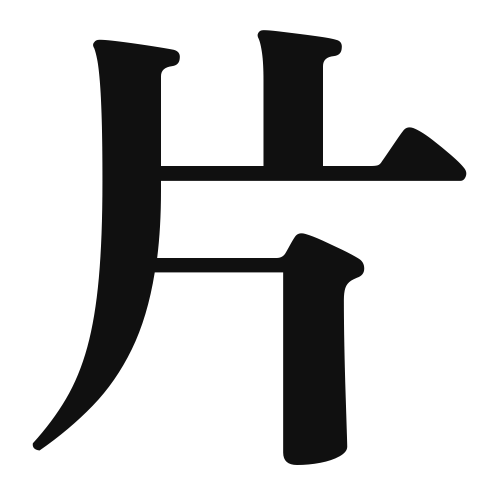1. Overview of Meaning
The kanji “片” (pronounced “kata”) generally means “piece” or “fragment.” It is often used to refer to a part of something or a single item from a larger whole.
2. Origin and Radical
Origin of the Kanji: The kanji “片” is classified as a pictogram, originally depicting a piece of something, like a broken object. It conveys the idea of a fragment or a single part.
Radical: The radical for “片” is also “片,” which signifies the concept of a piece or a side.
3. Examples of Usage
Common Words and Phrases:
- 片付ける (かたづける, katazukeru) – to tidy up
- 片道 (かたみち, katamichi) – one-way (trip)
- 片思い (かたおもい, kataomoi) – unrequited love
Example Sentences in Daily Conversation:
- この部屋を片付ける必要があります。 (This room needs to be tidied up.)
- 片道の切符を買いました。 (I bought a one-way ticket.)
4. Synonyms and Antonyms
Similar Kanji:
- 部 (ぶ, bu) – part, section; refers to a division or segment of a whole.
- 部分 (ぶぶん, bubun) – portion; emphasizes a part of something larger.
Antonyms:
- 全 (ぜん, zen) – whole; signifies completeness or entirety.
- 全部 (ぜんぶ, zenbu) – all; refers to the entirety of something.
5. Cultural and Historical Background
Relation to Japanese Culture: The concept of “片” is significant in Japanese culture, often reflecting the importance of balance and harmony in life. It is used in various contexts, from art to philosophy.
Proverbs and Idioms:
- 片手落ち (かたておち, katateochi) – literally “one-handed drop,” meaning something is incomplete or lacking.
- 片思いの恋 (かたおもいのこい, kataomoi no koi) – unrequited love, a common theme in Japanese literature and art.
